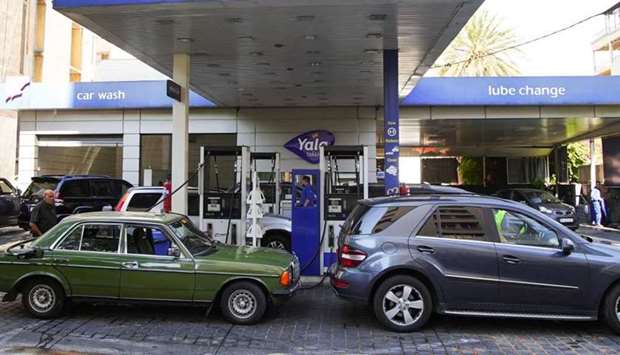Stuck in a stationary queue of cars waiting for fuel in Beirut, game designer Ali Kattouaa works the phone to make the most of the long holdup.
"I'm in a meeting while I'm waiting for gas. What can I say?" he said wearily, listening to a conference call on speaker while monitoring the queue for any hint of progress. "Lebanon is pushing us to the limits ... throwing all challenges at us."
Fuel shortages, part of wider problems which have plunged the country into deep economic crisis, have forced motorists in recent weeks to queue for hours for petrol - sometimes for less than a quarter of a tank.
Dozens of cars line up in the capital and cities across Lebanon, often waiting at stations before they open. Tempers sometimes flare. Local media reported an exchange of fire at a petrol station in the northern city of Tripoli on Friday.
For some people, filling up the tank is a daily quest with everything at stake.
"Every day the same story - if there's fuel we go to work. No fuel, we stay home," said decorator Alaa Saade, sitting in his truck with other labourers. "We wait for gas station owners to show empathy and let us fill our tanks."
For Kattouaa and others, the queues offer a chance to multi-task.
"While waiting I noticed that the water company is here, so I paid the bill," said accountant Marie Kevorkian, brandishing her receipt. She said she would check what other chores needed doing before she finally arrived at work.
Long-suffering motorists will face new challenges soon as the government says the country has run out of reserves to fund a $6 billion-a-year subsidy programme, half of it spent on fuel.
Energy Minister Raymond Ghajar said on Thursday that Lebanese drivers must get used to the idea that subsidies, which kept the cost of a tank of fuel at a fifth of its real level, would come to an end.
"Those who can't pay 200,000 Lebanese pounds ($13 on the informal market) for a tank should stop using a car and use something else," he said.
Until subsidies are lifted, drivers will continue to draw on patience and initiative.
"I work as a web developer and I've been waiting for half an hour," Jad Kouzi said in the capital this week. "I finished some work-related phone calls - and that's what we can do. We have to wait."

Cars queue for fuel at a gas station in Beirut, Lebanon. REUTERS
